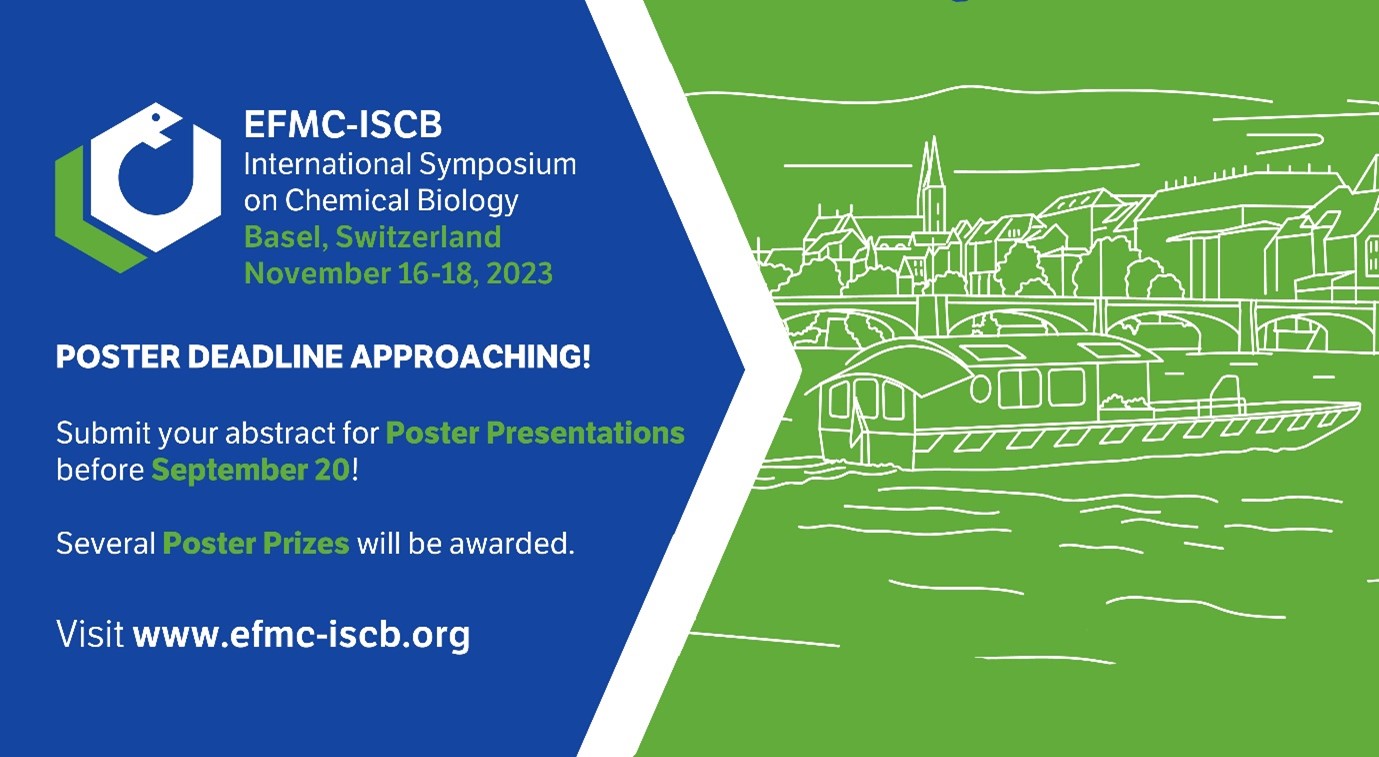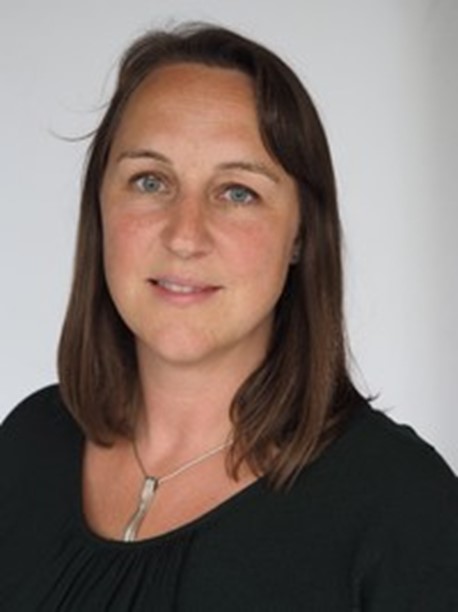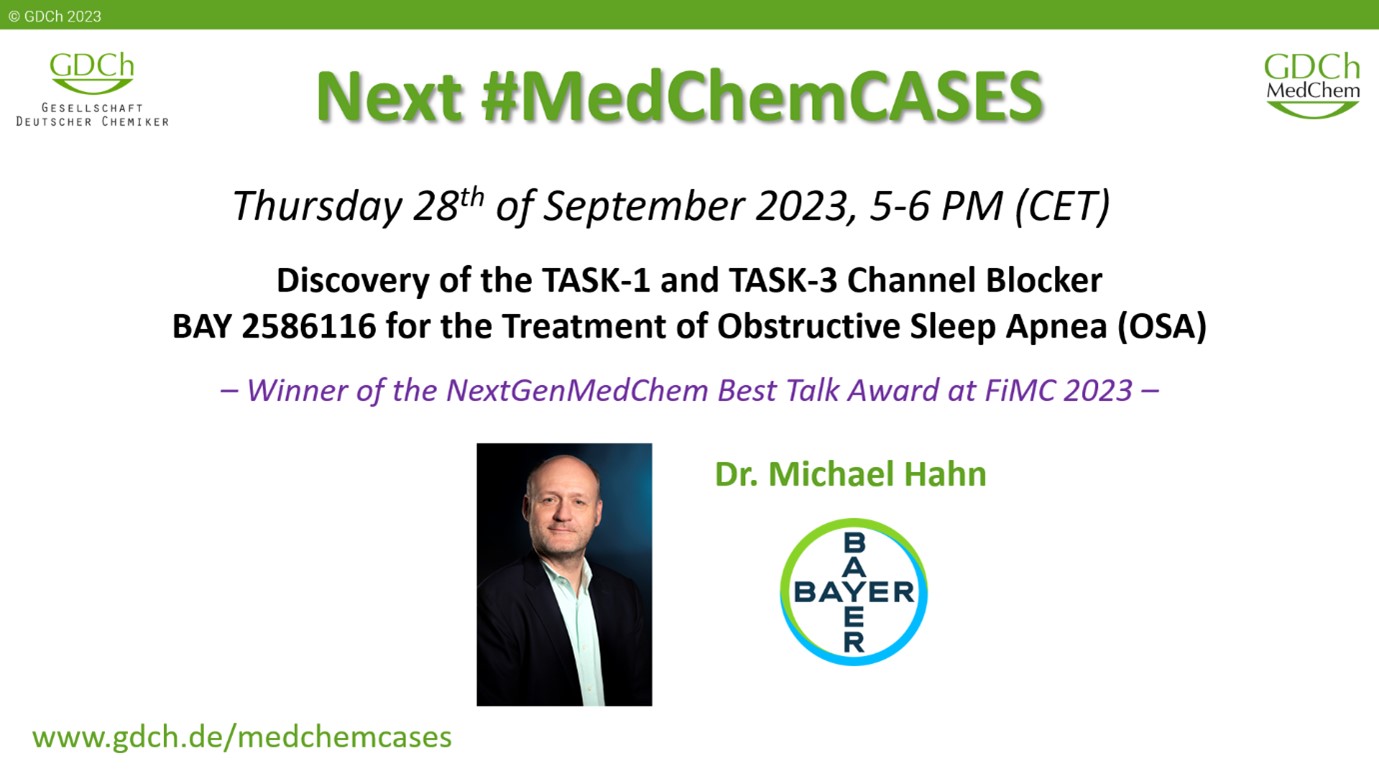|
|
EFMC STATEMENT ON EU PROPOSAL TO BAN PFAS
The EU, through the European Chemicals Agency (ECHA), has launched a proposal that aims to extensively restrict the manufacture, supply, and use of all per- and polyfluoroalkyl substances (Ref 1). PFAS are a large class of synthetic chemicals that are used across a broad range of activities in different scientific areas, not restricted to chemistry. However, several PFAS are environmental pollutants and some of them have detrimental effects on human health. Their extensive use throughout the society, combined with the low reactivity displayed by many fluoroalkyl chemicals, magnifies the potential for accumulation in the environment and contamination of food and water supplies.
According to this proposal, which is in public consultation until September 25th (ref 2), PFAS encompasses "any substance that contains at least one fully fluorinated methyl (CF3) or methylene (CF2) without any H, Cl, Br, or I attached to it" (ref 3). Thus, the PFAS concept in the EU proposal covers most fluoroalkyl materials, ranging from simple fluorinated reagents and starting materials used in drug discovery, to thermoplastic polymers found in laboratory commodities such as stirring bars or O-rings. Clearly, the entire ban of these materials, which is expected to be fully operational by 2027, can lead to major disruptions in all research, development, and innovation activities related to medicinal chemistry and chemical biology. Ultimately, it can have long-term implications on the innovation potential of EU research, especially on the speed of bringing new, next generation medicines to the patients.
EFMC strongly urges the scientific community, both in academia and industry, to become strongly involved in the on-going public consultation process. All contributions are most welcome at this stage. For further information, please check reference 4 (ref 4).
EFMC INTERNATIONAL SYMPOSIUM ON CHEMICAL BIOLOGY (EFMC-ISCB 2023) – POSTER DEADLINE APPROACHING (SEPTEMBER 20)
The European Federation for Medicinal Chemistry and Chemical Biology (EFMC) and the Swiss Chemical Society, Division for Medicinal Chemistry & Chemical Biology (DMCCB) invite you to join the International Symposium on Chemical Biology (EFMC-ISCB), scheduled to take place on November 16-18, 2023 in Basel, Switzerland.
Abstracts for poster presentation can be submitted until September 20, 2023. Join the 2 Poster Sessions which will give you ample time to share results and discuss scientific collaborations with fellow researchers. Several poster prizes will be awarded.
The scientific programme will feature 26 speakers and 8 oral communications, and the networking and social activities will give you plenty of chance to engage in discussions outside of the lecture halls.
More information and registration www.efmc-iscb.org.

LITERATURE SPOTLIGHT
The “literature spotlight” section of the newsletter will bring you a summary of recently published research in a concise and accessible way. Multiple thematics from different journals will be highlighted thanks to the valuable contribution of members of the EFMC working groups.
This contribution will focus on the recently published article on “Nucleoside Derivatives of 2,6-Diaminopurine Antivirals: Base-Modified Nucleosides with Broad-Spectrum Antimicrobial Properties” by Maria Grazia Martina et al. focusing on the synthesis and biological evaluation of novel base-modified nucleosides and their potential use in virus-bacteria co-infections.
There is an urgent need for novel broad-spectrum antiviral agents, exemplified in the last decade, to treat newly-emerging or re-emerging viruses and potential future epidemics. Accordingly, the authors explored the world of non-natural nucleosides, which still represents one of the most successful classes of antiviral agents marketed.
In this paper the group describes the development of novel base-modified nucleosides by modification of previously existing 2,6-diaminopurine antivirals to the corresponding D/L ribonucleosides, acyclic nucleosides, and prodrug derivatives. With the aim of treating complicated virus-bacteria co-infections, these compounds have been tested against different viral families and a panel of Gram-positive and Gram-negative bacteria.
Several of the newly generated compounds displayed micromolar activity against ZIKV, WNV, DENV, and SARS-CoV-2 viruses, one of these molecules exhibited improved properties thanks to the best antiviral profile. This compound was then converted to the corresponding ProTide, masking the sugar 5’-mono-phosphate as phosphoramidate (the most common approach to bypass the slow conversion of nucleoside antivirals to their biologically active triphosphate form), to attain potential insight into its possible mechanism of action; however the loss of activity suggested that conversion to the corresponding triphosphate was not effective, suggesting a different mechanism of action from the common antiviral nuclosides.
Interestingly, some of the most promising antiviral compounds of this work, also showed moderate antibacterial activity on Enterococcus faecalis and Streptococcus pyogenes, both clinically relevant bacteria. Furthermore, these compounds showed synergistic activity on common Gram-negative opportunistic pathogens, such as K. pneumoniae and A. baumannii, which nowadays represent a major public health concern.
To see more about this project, take a look to the full article here: https://doi.org/10.1002/cmdc.202300200 16th EFMC-YSN MEDCHEMBIOONLINE – SEPTEMBER 26
EFMC-YSN MedChemBioOnline is an exceptional opportunity for (early career) scientists who are interested in learning more about medicinal chemistry and chemical biology. The 16th edition will be devoted to “Best Practices in hit-to-lead Optimization” and will take place on September 26 from 16:30 to 18:30 CEST.
The hit to lead phase is a critical phase of drug discovery programs. The first set of compounds, or hits, that demonstrate promising activity against a target of interest are further characterized. Through limited medicinal chemistry efforts, the aim is to turn these hits into leads: compounds that we believe can be optimized into drug candidates.
Join us to get insights gathered from experienced practitioners from industry and academia and ask any questions you may have.
Have a look at the programme:
- Best Practices from Hits to Lead Generation
- Dr Rob Young (Blue Burgundy, United Kingdom)
- Design and Optimization of Hits with the Challenge of Targeting two Different Targets
- Dr Anita Wegert (Symeres, The Netherlands)
- The Discovery of Allosteric MALT1 Inhibitor Leads
- Dr Jean Quancard (Novartis, Switzerland)
- Round Table Discussion: "Best Practices from Hits to Lead Generation"
- Dr Jean Quancard (Novartis, Switzerland)
- Dr Andra Unzue Lopez (Merck, Germany)
- Dr Anita Wegert (Symeres, The Netherlands)
- Dr Rob Young (Blue Burgundy, United Kingdom)
More information & registration on www.medchembio.online.
The event is free and open to everyone thanks to the support of Symeres.
EFMC SESSION AT THE 12TH OFFICIAL CONFERENCE OF THE INTERNATIONAL CHEMICAL BIOLOGY SOCIETY (ICBS2023)
The meeting will carry the broader thematic of "Enabling Translational Science" and will be hosted in Ann Arbor, MI, USA on October 8-11, 2023. EFMC is happy to announce that our session on “Synthetic Biology for Medicinal Chemistry”, chaired by Dr Antonio Pineda-Lucena (CIMA Universidad de Navarra, Spain), is scheduled on October 10.
We look forward to meeting you all in Ann Arbor. EB & Abstract deadline is September 18th!
ICBS2023 will feature the following scientific sessions:
- Chemoproteomics
- Chemical Biology of Aging
- Proximity-inducing drugs
- Synthetic Biology for Medicinal Chemistry
- Advances in chemical and biological conjugates
- Epigenetic therapy
- Chemical Biology on CRISPR
- RNA biology
- Physiological Models in Chemical Biology
- Target 2035
Keynote Lecturers:
- Stefan Knapp Goethe University Frankfurt, Germany
- Shaomeng Wang University of Michigan, USA
- Ingrid Wertz, Lyterian Therapeutics, USA
Early Registration & Abstract Submission ends on September 18th.
For more information visit www.chemical-biology.org or e-mail at 2023ICBS@gmail.com.

GET TO KNOW CARA BROCKLEHURST, NOVARTIS INSTITUTES FOR BIOMEDICAL RESEARCH, SWIRTZERLAND
In this edition, our MedChemBioConversations is with Cara Brocklehurst from Novartis, Switzerland. Get to know her better by reading the interview below:

How did you get interested in Medicinal Chemistry?
I feel that I am a somewhat unusual breed of medicinal chemist as I lead a group of organic chemists who apply synthetic technologies and methodologies to enable medicinal chemistry project teams. I have been working in this field for almost two decades following a PhD in organic synthesis, automation and biocatalysis with Prof. Nick Turner at Edinburgh University. I came to Basel for a Postdoc with Prof. Andreas Pfaltz and enjoyed my time in Switzerland so much that I never left.
Where are you currently working and what is your current position?
I am a Director in our NIBR Global Discovery Chemistry group in Basel but working globally across the Novartis portfolio of medicinal chemistry projects. As a group leader – for a group called SynTech - I have the immensely satisfying role of enabling those in my team to develop and apply impactful synthetic technologies, remove bottlenecks, and develop parallel, automated and/or scalable syntheses for our often-complex drug molecules. I am energised by my sparky, curious, and creative colleagues and it is a great privilege to work alongside them.
What do you consider your greatest achievement in your scientific career?
A few years ago, I took a sabbatical in a team to set up a workflow called MicroCycle. We have built an automated and integrated platform for drug discovery, capable of parallel synthesis, micropurification and rapid multi-parameter data generation. The experience of working in automation, and with a diverse range of scientists and experts, took me in an interesting direction and I’m really excited to see where this field will go in the future.
What advice would you give to our younger audience of researchers?
My advice to others is to always follow your interests and never be afraid to jump into something new. I have taken some unusual turns in my career – however always following my curiosity - and have never regretted it.
Which scientist do you admire the most and why?
There are so many scientists I admire; it is hard to choose just one. I strongly admire anyone who can communicate their science to non-experts in a way that demystifies and removes stigma. We need to work on bringing science to all as it will be science that helps to find solutions to global challenges such as pandemics and climate change. For this reason, I would choose Professor Dame Sarah Gilbert, who I once saw on the news having to explain her science to unforgiving news reporters whilst developing the Oxford University/AZ vaccine at lightning speed.
Which field of medicinal chemistry do you consider the most promising for the future?
The medicinal chemistry community is buzzing with talk of AI and ML drug discovery. Of course, plenty of companies jump on this topic and we need to patiently and diligently distil out the real, pragmatic, and workable applications of these new technologies. If we can use AI/ML to design synthesisable molecules – linking with tools for retrosynthesis and reaction condition planning – then we can hopefully get to answers sooner. #MEDCHEMCASES - SEMINAR BY THE DIVISION OF MEDICINAL CHEMISTRY OF THE GERMAN CHEMICAL SOCIETY (GDCH)
The MedChem Division of the German Chemical Society (GDCh) would like to invite you to the next #MedChemCASES online seminar which will be held on September 28 by Dr. Michael G. Hahn (Bayer)
The topic of the webinar will be “Discovery of the TASK-1 and TASK-3 Channel Blocker BAY 2586116 for the Treatment of Obstructive Sleep Apnea (OSA)”
TWIK-related acid-sensitive potassium (TASK) channels—members of the two pore domain potassium (K2P) channel family are found in neurons, cardiomyocytes and vascular smooth muscle cells, where they are involved in the regulation of heart rate, pulmonary artery tone, sleep/wake cycles and responses to volatile anaesthetics. K2P channels regulate the resting membrane potential, providing background K+ currents controlled by numerous physiological stimuli, such as pH in case of TASK. As recently published, the unique inner X-gate1 enables TASK channels to bind inhibitors with high affinity, extraordinary selectivity and extremely slow compound washout rates, which make these inhibitors attractive chemical starting points for the treatment of sleep apnea. Here we present a chain of translatability from a classical target driven drug discovery approach to represent a molecular association between a phenotypic in vivo disease model and human disease for OSA.
Initially, ultra-high throughput screening led to the identification of a novel highly potent and selective TASK-1/TASK-3 blocker class. Medicinal Chemistry efforts led to the lead structure BAY 1000493 (1) showing the required PK properties with high clearance and short half-life to avoid any systemic side effect. However, only moderate and short in vivo efficacy in the OSA pig model2 was observed after nasal application. Consequently, our optimization strategy focused on improving in vivo efficacy and duration of action in the OSA-pig model. Finally, further extensive chemical optimization culminating in the identification of BAY 2586116 (2), which was in Phase II for the treatment of OSA3. The discovery of BAY 2586116 (2) and the structural activity relationship within this class will be presented.

Register for free here.
#GDCh (MedChem Division), #NextGenMedChem. NEWS FROM THE SOCIETY FOR MEDICINE RESEARCH (SMR)
The Society for Medicines Research has decided to dedicate its 2023 award for innovation and impact in medicines to "The Covid-19 Vaccines – in recognition of all those involved in their development, approval and delivery". The award will be received by a member of the UK Covid-19 Vaccines Task force on behalf of the wider community and will be followed by a lecture on the task force’s activities.
The meeting will also feature a series of presentations highlighting recent clinical candidates by speakers including:
- Dr Beth Thomas, Storm Therapeutics
- Dr Steve Watson, Sosei Heptares
- Dr Phil Humphreys, GSK
- Prof Paul Workman, Institute of Cancer Research/Nuvectis Pharma
- Dr Graeme Smith, Artios Pharma
Sponsorship:
Sponsorship opportunities are available for this event.
Click here to download the Sponsorship Opportunities flyer and booking form.
Fees:
£95 SMR member rate
£145 Non-member rate
NEWS FROM THE BIOLOGICAL AND MEDICINAL CHEMISTRY SECTOR (BMCS) OF THE ROYAL SOCIETY OF CHEMISTRY (RSC)
The BMCS is pleased to announce upcoming events.
- 6th RSC-BMCS/RSC-CICAG Artificial Intelligence in Chemistry
- SCI/RSC 22nd Medicinal Chemistry Symposium
- Hot Topics: Targeting RNA
- RSC-BMCS Postgraduate symposium XVII
- 9th RSC-BMCS Fragment-based Drug Discovery Meeting
6th RSC-BMCS/RSC-CICAG Artificial Intelligence in Chemistry
4th – 5th September, 2023, Churchill College, Cambridge, UK
RSC BMCS/RSC CICAG
Registration is now open!
Website: https://www.rscbmcs.org/events/aichem23/
Synopsis:
Artificial Intelligence is experiencing a renaissance in the development of new methods and practical applications to ongoing challenges in Chemistry. Following the successes of five annual “Artificial Intelligence in Chemistry” meetings starting in 2018, we are pleased to announce that the Biological & Medicinal Chemistry Sector (BMCS) and Chemical Information & Computer Applications Group (CICAG) of the Royal Society of Chemistry are once again organising a conference to present the current advances in AI and machine learning in Chemistry. The meeting will be held over two days and combine aspects of artificial intelligence and deep machine learning methods to applications in chemistry. The programme will include a mixture of keynote talks, panel discussion, oral presentations, flash presentations, posters and opportunities for open debate, networking and discussion.
SCI/RSC 22nd Medicinal Chemistry Symposium
10th – 13th September, 2023, Churchill College, Cambridge, UK
SCI/RSC
Registration is open!
Website: https://www.rscbmcs.org/events/cammedchem/
Synopsis: The organisers invite you to the 22nd SCI-RSC Medicinal Chemistry symposium, Europe’s premier biennial Medicinal Chemistry event, focusing on first disclosures and new strategies in Medicinal Chemistry
Hot Topics: Targeting RNA
30th November 2023, Virtual
Registration is now open!
Website: https://www.rscbmcs.org/events/hottopicsrna23/
Synopsis: The BMCS Hot Topics online meetings are intended to highlight breaking areas of research in fields of science relevant to drug discovery. They will run as stand-alone half-day virtual events, 2-3 times per year. The programme will be targeted towards researchers working in academia or industry who would like to enhance their understanding of these nascent or developing fields. The inaugural meeting will cover relevant methods and modes of targeting RNA in drug discovery and will focus on how small molecules can accomplish this, including RNA binding and degradation, splicing modulation, and enzymes modifying RNA. There will be presentations from leading academics and industry.
RSC-BMCS Postgraduate symposium XVII
7th December 2023, University of Oxford, Oxford, UK
RSC-BMCS
Abstract submissions are now open!
Registration is now open!
Website: https://www.rscbmcs.org/events/psxvii/
Synopsis: This face to face meeting will comprise an oral and poster presentations from PhD students and post-doctoral workers researching in biological or medicinal chemistry. In addition, the agenda will feature invited keynote speakers from industry and academia.
9th RSC-BMCS Fragment-based Drug Discovery Meeting
4th – 5th March, 2024, Hinxton Hall Conference Centre, welcome Genome Campus, Cambridge, UK
RSC BMCS
Abstract submissions and registration is now open!
Website: https://www.rscbmcs.org/events/fragments24/
Synopsis: The aim of the 9th RSC-BMCS Fragment-based Drug Discovery meeting will be to continue the focus on case studies in Fragment-based Drug Discovery that have delivered compounds to late stage medicinal chemistry, preclinical or clinical programmes. The Fragment series was started in 2007 and continues with this theme in having over three-quarters of the presentations focused on case studies. This will be complemented by technology progress in high concentration, NMR, SPR and X-ray screening. THIS NEWSLETTER IS KINDLY SPONSORED BY
|
|
|
|
|
|
ISSUE SPONSORED BY

For over 30 years, the world’s leading life sciences companies have made Symeres part of their team. With our integrated medicinal chemistry; Admescope ADME-Tox-PK platform; Oncolines in vitro oncology and residence time determination; synthetic chemistry; route development and clinical supply, we create safe, innovative therapies. We make molecules matter. Together.
Read more
EFMC ORGANISED EVENTS
September 26, 2023
Virtual Event
16th EFMC-YSN MedChemBioOnline
November 16-18, 2023
Basel, Switzerland
EFMC International Symposium on Chemical Biology (EFMC-ISCB)
April 8-11, 2024
Utrecht, The Netherlands
EFMC-ACSMEDI Medicinal Chemistry Frontiers 2024
September 1-5, 2024
Rome, Italy
XXVIII EFMC International Symposium on Medicinal Chemistry (EFMC-ISMC 2024)
EFMC SPONSORED EVENTS
September 26, 2023
Virtual Event
3rd Munich-Leiden Virtual ChemBio Talks
October 10-11, 2023
Tübingen, Germany
MedChem Campus 2023
December 7, 2023
Oxford, United Kingdom
RSC-BMCS Postgraduate Symposium XVII
December 8, 2023
Brussels, Belgium
MedChem 2023
January 24-26, 2024
Orsay, France
SCF Chemical Biology Symposium 2024 – Chemistry meets Biology
January 28-February 1, 2024
St. Anton, Austria
4th Alpine Winter Conference on Medicinal and Synthetic Chemistry
JOB PORTAL
Business Development Executive, Ely, UNITED KINGDOM
Read more
|
|
